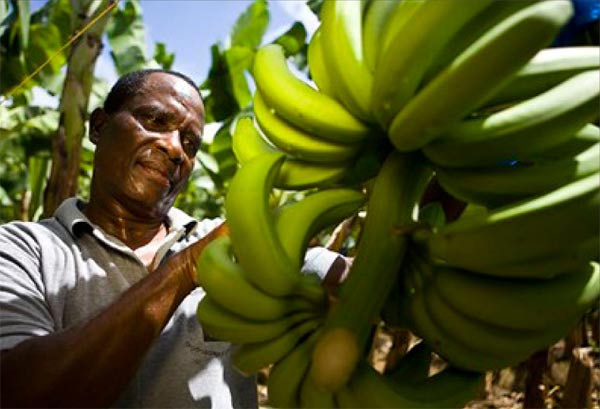 IN Part I we drew attention to the Leader of the Opposition’s expressed support for the instant CIP due to the “desperate” state of St. Lucia’s economy, and pointed out why we thought that this was wrong. We ended by then drawing attention to the IMF staff warning that countries benefiting from rich inflows of funds from the CIPs may not adopt the fiscal policies necessary for the health of their economies (IMF WP/15/93). This takes a closer look at the warning.
IN Part I we drew attention to the Leader of the Opposition’s expressed support for the instant CIP due to the “desperate” state of St. Lucia’s economy, and pointed out why we thought that this was wrong. We ended by then drawing attention to the IMF staff warning that countries benefiting from rich inflows of funds from the CIPs may not adopt the fiscal policies necessary for the health of their economies (IMF WP/15/93). This takes a closer look at the warning.
We really should pay heed to that warning, as the last time we had grand visions we went about establishing the Financial Services sector. This was supposed to be a cure for our economic ills, but the 2014 Economic Review tells us that revenue from the “banking and Auxiliary Services” sector remains constant in the EC$150 million to EC$160 million range for the years 2009 to 2014 period (constant prices).
No figures are available for the direct contribution of Financial Services to our economy, but in Barbados, that sector reported revenue of nearly BDS$1Billion or EC$1,350,000,000 for 2014. The contribution of Financial Services to St. Lucia’s GDP gets lost in the exchange rate conversion of the Barbados dollar, yet we hear nothing of changes in policies, plans or otherwise for improvement in our performance.
In today’s St. Lucia, agriculture has taken back-stage; little to no mention is made of it, and there is haphazard if consistently poor revenue contribution to GDP from it. According to the 2014 Review, the last year in which agriculture managed a triple digit contribution to our economy was 2009 when the value of that contribution was EC$108 Million (constant prices). In 2014, agriculture contributed EC$70 Million to GDP, reflecting the steady decline. Now, four years into this current administration, we are told that the government is holding consultations with farmers to seek their views on the way forward. That’s it?
In this same period, 2009 to 2014, banana revenue declined from EC$53million to EC$12million (2014 Economic Review, constant prices). Meanwhile, IMF stricken Jamaica has managed to re-energize their agriculture resulting in a reduction of over US$44 million or 4.5% of their food import bill for 2014. They have given new life to their banana industry and have obtained phyto-sanitary approval from Trinidad & Tobago to export bananas to that country. But here in St. Lucia, we are told that CFL, the parent company of the SuperJ supermarkets, is having difficulty in supplying the local market for ripe bananas from local production.
Not only are we not minding our own business, but our regional “business” might be in trouble as well, and those in the tourism sector might want to take note. Over in St. Kitts & Nevis, the government there took the perfectly understandable position of investing some of the proceeds of their CIP programme into the construction of a luxury hotel. At the very least, this hotel will provide employment for its citizens.
Hotels built with CIP funds and part or fully owned by governments will have been built though with what is in effect free money, (even when financing is described as a loan), and the question of what then drives that hotel’s room rates must be asked. With little to no realizable risk from default on a mortgage, it would seem that they would be in a position to offer lower rates than any other hotel operating in a commercial environment. While this may be manageable with the single hotel in St. Kitts & Nevis, what happens when everybody else does the same thing? How does the existing tourism plant in the region compete and survive?
Then, not having taken care of our business, when the inevitable happens and the developed nations decide that, in order to visit them, visas will be required from all of our countries with CIPs, what do we sell next?
Finally, some numbers. St. Kitts & Nevis’ Debt to GDP ratio fell from 159% in 2010 to 80% in 2014 largely due to revenue from its CIP according to the IMF. One would think that Kittians and Nevisians would be a bunch of happy people, but the statistics paint a different picture. According to UN data for 2012, St. Kitts and Nevis had a murder rate of 33 per 100,000 citizens. To put that in context, for the same year the murder rate for Jamaica was 39 per 100,000, while for Trinidad & Tobago it was 28 per 100,000.
One would not normally think of St. Kitts and Nevis as being a more deadly place than Trinidad & Tobago, or nearly as bad as Jamaica, but that’s what the statistics indicate. Again, this is not said in condemnation, and we make no direct link between the CIP and crime, but it must be pointed out that the massive infusions of cash have not led to a solution to St. Kitts & Nevis’ problems. St. Lucia’s murder rate is rapidly catching up to that of those at the top of the table.
We continue to argue that not only is the instant CIP morally wrong, but that it will also lead to further declines in our societal fabric that we cannot afford. The concept of global citizenship being promoted locally is absurd as it relates to St. Lucians. Having an identity and being grounded, or anchored, remain important to most human beings, and in addressing the issue of crime in Trinidad & Tobago, the new government recognizes this with its proposal to commence the teaching of the history of that country in its schools.
Here in St. Lucia we note repeated calls by the Editorial of this newspaper for the re-introduction of the teaching of civics in our schools, all of which have apparently fallen on deaf ears. This grounding is needed. Maybe we can push these lessons onto the new laptops that all school children apparently now have? There may, though, be a number of ways in which this teaching of civics can be done, but somehow, we must do it.
But back to our Leader of the Opposition. The above is a mention of just some of the issues that should be of concern to us. Again, the way our democracy is supposed to work, a vibrant Opposition puts a brake on potential excesses or failures of the Government, and that ensures good governance. No Opposition, no brakes, and is it any wonder that we “bonksin” the old car all over the place?
So to the Leader of the Opposition, please, man-up, or rather, woman-up. Acknowledge an error, change your mind, and denounce this instant CIP thing in its entirety. Best of all, in making this acknowledgement of error, you will distinguish yourself as a politician.







